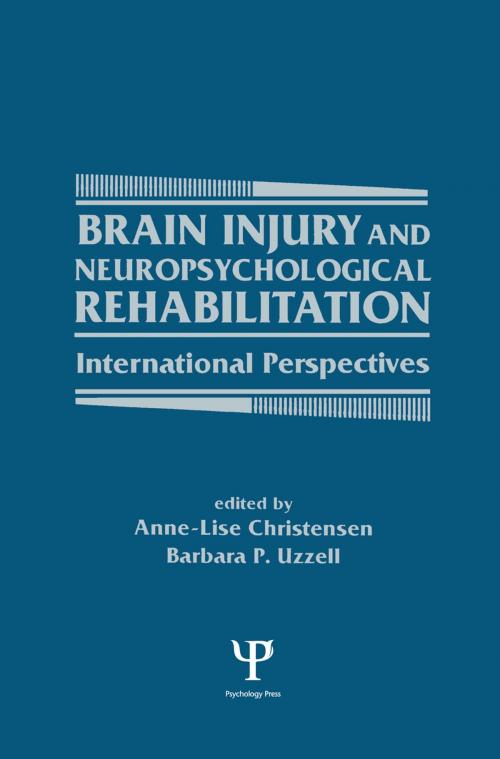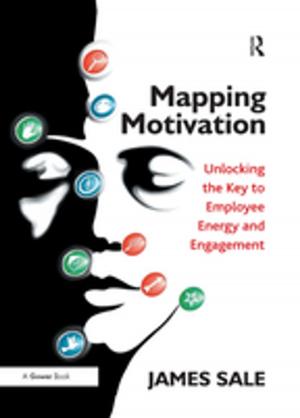Brain Injury and Neuropsychological Rehabilitation
International Perspectives
Nonfiction, Health & Well Being, Psychology, Neuropsychology| Author: | ISBN: | 9781317780977 | |
| Publisher: | Taylor and Francis | Publication: | January 2, 2014 |
| Imprint: | Psychology Press | Language: | English |
| Author: | |
| ISBN: | 9781317780977 |
| Publisher: | Taylor and Francis |
| Publication: | January 2, 2014 |
| Imprint: | Psychology Press |
| Language: | English |
Most individuals with brain damage experience a curtailment or loss of lifestyle without rehabilitation. Improved methods and appropriately timed medical interventions now make it possible for more individuals to survive brain insults and to be assisted by rehabilitation neuropsychologists in achieving renewed commitment to life. Damage to the brain -- the organ of human emotions and cognition -- reduces psychological functioning and realistic adaptation, and the patient and his/her family are often encapsulated in the time prior to injury. To regain part or most of the lifestyle lost, an honest, dedicated, and realistic approach is required. Neuropsychological rehabilitation can provide tools for this task, provided that the most comprehensive, elaborate and knowledge-based methods are integrated in the training, and provided that knowledge from many disciplines and from community environments and family is encompassed.
In the present book knowledge representing the development of neuropsychological rehabilitation during the past five years is collected from a conference titled "Progress in Neuropsychological Rehabilitation." The chapters are written by professionals who were invited to share their experiences from different areas within the field because of their expertise with processes involved in neuropsychological rehabilitation. After a historical review, the chapters follow a visible sequence from biology to neuropsychology and neuropharmacology. Experts discuss the most advanced medical knowledge of the effect of injury on states of the organism. The second part of the book is dedicated to the outcome and the economics of rehabilitation as well as plans for the future. Finally, a panel discussion addresses the overall concept: Is rehabilitation worthwhile and ethical? The reactions -- influenced by the cross-cultural exchange of knowledge -- shed light on the essence and practice of today's neurorehabilitation.
Most individuals with brain damage experience a curtailment or loss of lifestyle without rehabilitation. Improved methods and appropriately timed medical interventions now make it possible for more individuals to survive brain insults and to be assisted by rehabilitation neuropsychologists in achieving renewed commitment to life. Damage to the brain -- the organ of human emotions and cognition -- reduces psychological functioning and realistic adaptation, and the patient and his/her family are often encapsulated in the time prior to injury. To regain part or most of the lifestyle lost, an honest, dedicated, and realistic approach is required. Neuropsychological rehabilitation can provide tools for this task, provided that the most comprehensive, elaborate and knowledge-based methods are integrated in the training, and provided that knowledge from many disciplines and from community environments and family is encompassed.
In the present book knowledge representing the development of neuropsychological rehabilitation during the past five years is collected from a conference titled "Progress in Neuropsychological Rehabilitation." The chapters are written by professionals who were invited to share their experiences from different areas within the field because of their expertise with processes involved in neuropsychological rehabilitation. After a historical review, the chapters follow a visible sequence from biology to neuropsychology and neuropharmacology. Experts discuss the most advanced medical knowledge of the effect of injury on states of the organism. The second part of the book is dedicated to the outcome and the economics of rehabilitation as well as plans for the future. Finally, a panel discussion addresses the overall concept: Is rehabilitation worthwhile and ethical? The reactions -- influenced by the cross-cultural exchange of knowledge -- shed light on the essence and practice of today's neurorehabilitation.















